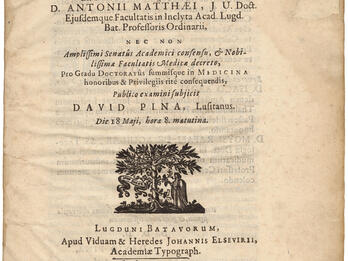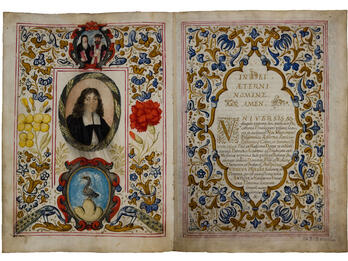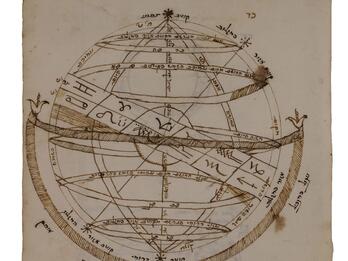Letter to Hugo Boxel
To the Most Esteemed and Wise Hugo Boxel
From B. d. S.
Sir,
Yesterday I received your letter, which was very welcome to me, as much because I wanted to hear some news from you as because I see that you have not completely forgotten me. Some, perhaps, would consider it an evil omen that the reason for your writing to me was specters or spirits. But I find in this something more important, because I think that not only true things, but even trifles and imaginations, can be to my advantage.
But let’s set to one side the question whether there are specters, phantasms, and imaginations, because you find it extraordinary, not only to deny that there are such things, but even to doubt them—convinced as you are by the great number of stories told about them, both by the ancients and the moderns. The great respect I’ve always had for you, and still have, does not permit me to contradict you, much less to flatter you. The middle course I’ll take is to ask that of the many stories you’ve read about ghosts, you choose, please, one or two which are least subject to doubt, and which most clearly prove that there are specters. For to speak frankly, I’ve never read one credible Author who showed clearly that they exist. To this day I don’t know what they are, and no one has ever been able to tell me.
It’s certain, however, that in the case of a thing experience has shown us so clearly, we must know what it is. Otherwise it will be very hard to conclude from some story that there are specters. What we should rather infer is that there is something, but that no one knows what it is. If the Philosophers want to call those things we don’t know “specters,” I won’t be able to deny them that, because there are infinite things of which I have no knowledge.
Finally, Sir, before I explain myself further in this matter I ask you to tell me what sort of things these specters or spirits are. Are they children, fools, or madmen? Because from what I’ve heard about them, their actions seem to be those of the brainless, rather than of intelligent men. To interpret them as favorably as possible, they are like nothing more than children’s games or the pastimes of fools.
To make an end of this, I’ll mention one more thing: the desire people commonly have to tell things, not as they are, but as they want them to be. We find this more in stories of spirits and ghosts than in other cases. The main reason for this, I believe, is that stories of this kind have no other witnesses than the people telling them. So, their inventors can, at their pleasure, add or omit details as seems best to them, without needing to fear that anyone will contradict them. [They invent these things] especially to justify the fear which has seized them about their dreams and phantasms, but also to strengthen their boldness, faith and opinion.
Besides this I have found still other reasons which move me to doubt, if not the stories themselves, then at least the details with which they’re told, details which are most useful to the conclusion people try to draw from these stories.
I’ll stop here, until I understand which stories have so convinced you that you think it’s absurd even to doubt them.
Notes
Words in brackets appear in the original translation.
Credits
Baruch Spinoza, “Letter 52 (Nagelate Schriften): To the Most Esteemed and Wise Hugo Boxel from B. D. S.,” from The Collected Works of Spinoza, vol. 2, ed. and trans. Edwin Curley (Princeton, N.J.: Princeton University Press, 1985), pp. 408–9. Copyright © 1985 by Princeton University Press. Republished with permission of Princeton University Press, permission conveyed through Copyright Clearance Center, Inc.
Published in: The Posen Library of Jewish Culture and Civilization, vol. 5.





